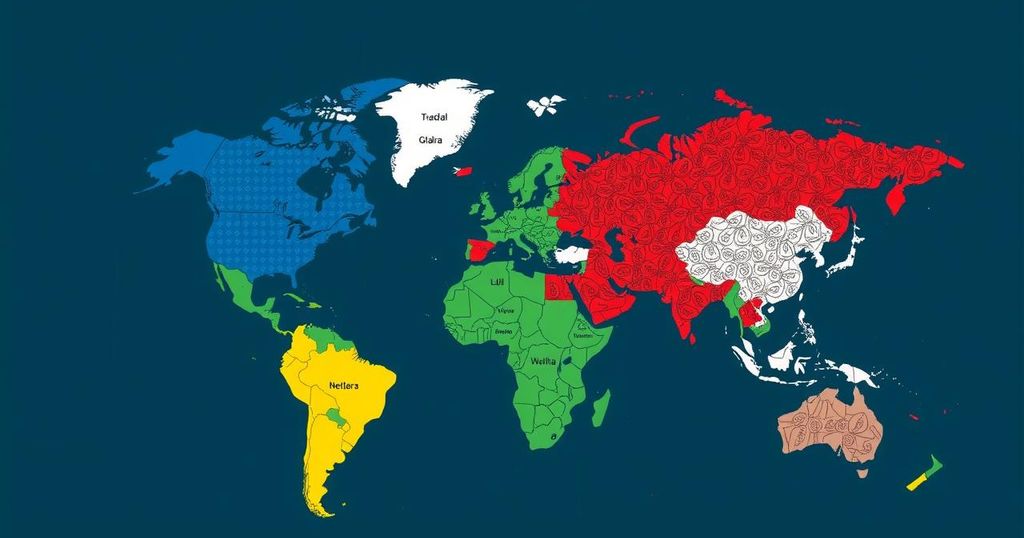The Commonwealth Heads of Government Meeting in Samoa brings together leaders from 56 nations to discuss urgent matters, including the critical impact of climate change on low-lying island states and the contentious issue of reparations for the transatlantic slave trade. With a notable presence from various Caribbean countries advocating for reparative measures, the summit represents an essential platform for addressing these intertwined global challenges.
The Commonwealth Heads of Government Meeting has commenced in Samoa, where leaders from 56 nations will address critical issues such as climate change and reparations for the transatlantic slave trade. Among the attendees are officials from nations with historical ties to Britain, including King Charles. The summit is particularly pertinent for small island nations, which face existential threats from rising sea levels due to climate change. United Nations Secretary-General Antonio Guterres has highlighted that ocean temperatures are increasing in the Pacific Islands at three times the global average, placing these populations in a precarious situation. Moreover, Australian Foreign Minister Penny Wong underscored that climate change stands as the foremost national security and economic threat to Pacific communities. Additionally, leaders have begun discussions surrounding the issue of reparations for the transatlantic slave trade, a topic that has garnered renewed support from various Caribbean nations and the African Union. British Prime Minister Keir Starmer has stated that while the UK does not intend to formally introduce the issue of reparations at this gathering, he remains open to dialogue with countries that wish to pursue this matter. The Caribbean Community (CARICOM) has established a commission advocating for reparations from former colonial powers such as the United Kingdom, France, and Portugal. The ongoing debate highlights a divide between those who argue that countries should not be held accountable for historical injustices and those who maintain that the legacies of slavery continue to perpetuate racial inequalities. As the summit progresses, island leaders are expected to release a declaration focused on ocean protection, reinforcing the centrality of climate change discussions at this pivotal gathering. Furthermore, a representative from CARICOM indicated that this summit offers a significant opportunity for dialogue concerning reparations, emphasizing the importance of addressing the demands of those affected by historical atrocities. Recognizing that between the 15th and 19th centuries, approximately 12.5 million Africans were forcefully transported to the Americas, the discussions at this summit aim to bring to light the enduring impacts of such practices on contemporary society.
The Commonwealth of Nations, comprised of diverse countries with historical ties to the British Empire, has convened to address pressing global challenges, particularly climate change and reparations linked to historical injustices. The upcoming discussions are especially relevant for small island nations that are increasingly vulnerable to the effects of climate change, as rising sea levels threaten their very existence. Additionally, the historical context of slavery, where millions of Africans were forcibly taken and enslaved, continues to provoke discussions surrounding social justice and reparations. Amid these discussions, leaders seek to balance the urgency of climate action with the ethical imperative of addressing historical wrongs.
In conclusion, the Commonwealth Heads of Government Meeting in Samoa is centered on critical issues such as climate change and reparations for historical injustices. As leaders from nations with colonial histories gather, they aim to discuss strategies for protecting vulnerable island states from climate change, while also engaging in important dialogues about reparations for the transatlantic slave trade. The outcomes of this summit could potentially shape future international relations and accountability measures for historical injustices.
Original Source: www.voanews.com






